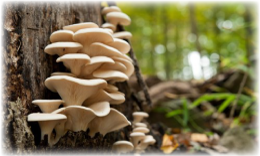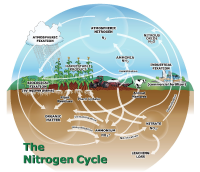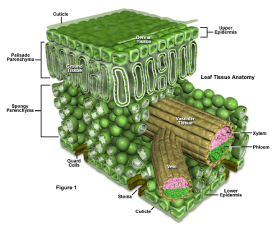|
Instructor: |
Two classes per week: |
To register a student
|
 Ecology (Fall 2026)
Ecology (Fall 2026)
September 21 – November 19, 2026
This course will provide in-depth information and labs on topics foundational to understanding ecology — among them:
- Populations
- The Food Chain
- Biomes
- Case study: Wolves in Yellowstone
- Simulation: Animal behavior
- Observing decomposition
- Simulation: Forest succession
- Life or Death Food Chain Decisions
- Chemical Cycles: Water, Carbon, & Nitrogen Cycles
- Humans and the Biosphere
Labs in "Ecology"
Labs will be used to explore ways the above issues overlap and interrelate. Among our labs:
RESEARCH REPORT
Students produce a research report on a biome or ecosystem. All students present their reports to the class.
MATERIALS
Your student will need:
- our textbook — a free download, using a link the instructor will provide;
- The Biology Coloring Book — Robert Griffen & Cinthea Vadala, First edition
ISBN-10: 0064603075 | ISBN-13: 978-0064603072;  a three-ring binder — with loose leaf paper and section dividers.
a three-ring binder — with loose leaf paper and section dividers.
HOMEWORK & TESTING
- Students will be expected to complete approximately 2 – 3 hours of homework each week. Homework consists of reading, annotating text, watching videos, completing worksheets and labs, and studying.
- A final test is provided to parents to administer at home as they wish — e.g., open-book, closed-book, as a learning tool, as a grade generator, or some combination of these.
|
Instructor: |
Two classes per week: |
To register a student
|
|
Our approach to ... ScienceEach of our intensives includes labs, lecture, and discussion. Students also write research reports and present their findings to the class. For your homeschooling, our science intensives will prove versatile: you may use them as standalone enhancements to your at-home curriculum, or you may combine them to create a robust year-long course with labwork. What's more, our science intensives aim high: they employ high-quality texts, university websites & resources, AP-level labs, and in-depth exploration of the topics we address. What's more, our intensives are taught by subject-matter experts who are passionate about their disciplines. At the same time, we address the needs of two quite different kinds of students:
Students with more science acumen, accordingly, can learn deeply, while students new to the discipline learn comprehensively. A more detailed look at our methods:
[This instructor] runs a fantastic biology class. Her enthusiasm is readily passed on. The material can be challenging, but she takes the time to explain things in a way that the student understands, even on her own time before or after class. She uses a wide variety of printed materials, videos, PowerPoint slides—all together they paint a clear picture that really facilitates learning. I have found that my 13-year-old son had not just memorized the material but actually understood it. For instance, when he came across unfamiliar questions on a practice test, he was able to reason his way with confidence to the correct answers. —Mom of 13-year-old son, homeschooler |
Copyright © 2015 - 2023 Diane and Roy Speed. All rights reserved. |
Email us at info@hscollegebound.com |



 Genetics (Winter 2026)
Genetics (Winter 2026) a three-ring binder — with loose leaf paper and section dividers.
a three-ring binder — with loose leaf paper and section dividers. Botany (Spring 2026)
Botany (Spring 2026) a three-ring binder — with loose leaf paper and section dividers.
a three-ring binder — with loose leaf paper and section dividers.